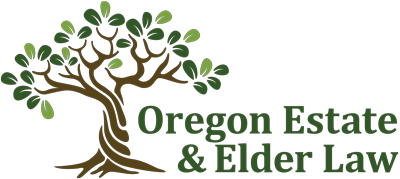Living Will
 When you’re looking for an Elder Law attorney in Lake Oswego we’re here for you. Our team specializes in veterans benefits, Medicaid, estate planning, and probate! In Oregon, a Living Will is referred to as an Advance Directive. An Advance Directive is a legal document that expresses your health care wishes and names medical decision-makers. By completing an Advance Directive, you legally express your preferences regarding end-of-life care, clarify your values, and select agents to make healthcare decisions if you are unable to speak for yourself.
When you’re looking for an Elder Law attorney in Lake Oswego we’re here for you. Our team specializes in veterans benefits, Medicaid, estate planning, and probate! In Oregon, a Living Will is referred to as an Advance Directive. An Advance Directive is a legal document that expresses your health care wishes and names medical decision-makers. By completing an Advance Directive, you legally express your preferences regarding end-of-life care, clarify your values, and select agents to make healthcare decisions if you are unable to speak for yourself.
Oregon’s Advance Directive combines two legal documents in one. Part one is a healthcare power of attorney where you appoint an agent and alternate agents to make healthcare decisions for you if you cannot make them yourself. Part two of the document is a Directive to Physicians where you make decisions regarding life support and tube feeding in four specific circumstances. Our office created a supplement to include with the Advance Directive to express your preferences on organ donation, in-home care, pain control, and other important decisions.
If an Advance Directive is not completed and you are unable to make healthcare decisions for yourself, a Guardianship may need to be established with the court before another person can make decisions for you. A Guardianship is a method of obtaining legal custody or decision-making authority over another person’s health and well-being. A Guardianship requires working with an attorney to petition the court to appoint the individual and requires annual reports to the court. Guardianships are expensive and time-consuming.
Living Trust
A living trust, also referred to as a revocable living trust, is a flexible and universal estate planning tool. A revocable living trust is a written agreement that appoints a trustee to manage the property owned by the trust. Trusts generally avoid the probate court altogether, which makes them a popular tool in Oregon.
A newly-created trust does not yet own any assets or property, so it must be “funded” by the individuals who created it. The individuals who create a revocable living trust are referred to as the grantors, but may also be called trustors or trust makers. Funding a trust is the process in which the grantors will change the ownership of their assets to be owned by the trust. The grantors will continue to manage their assets the same as they did before the trust was created. However, they will now be doing so as the current trustees of the trust. All assets stay under your control and remain held under your social security number.
During your lifetime, you will be both the grantor and trustee of your trust. In the event that you need assistance in managing your financial affairs, the trust will describe who may step in as a successor trustee and under what circumstances that individual will assist you.
Upon your death, the trust will become irrevocable. Once the trust is irrevocable, it generally cannot be modified or canceled. At that point, your successor trustee will step in and manage the assets held in the trust according to your wishes and provisions of the trust. Those provisions also describe the beneficiaries who will receive or inherit assets and property from your trust upon your death.
Trust Law
 Our attorneys provide legal advice to trustees and successor trustees who need assistance with trust settlement.
Our attorneys provide legal advice to trustees and successor trustees who need assistance with trust settlement.
If you are named as trustee of a trust, it is crucial to learn about what will be expected of you, both by the family and under Oregon law.
A trust or “Revocable Living Trust” is a commonly used legal tool for estate planning. Personal property and real estate are owned by the trust. The individual who is responsible for managing those assets upon the death of the trust’s creator, and ultimately distributing the assets to the beneficiaries, is called the successor trustee.
Our affiliate website, Collier Law, includes more information on settling trusts in Oregon.
Probate
When a person dies, they often leave behind property and debts. Every state has a court-supervised process to transfer the title of property from a deceased person to their heirs or beneficiaries under a valid Will or “Last Will and Testament.” A court will monitor the transfer of a deceased person’s property after the payment of their debts. This court-supervised process is called probate.
If a person died without a valid will, they died “intestate,” and their property will be distributed under the guidance of the probate court according to the set of laws in Oregon that address intestate succession. If a person died with a will in place, they died “testate,” and their property will be distributed according to their wishes, as stated in their will.
In Oregon, the person in charge of handling the estate is called the Personal Representative. In other states, this legal representative may be referred to as the Executor of the estate.
An attorney who specializes in estate settlement can give you an estimate of the costs and timelines for probate. In many cases, it takes more than a year to complete the court-supervised estate settlement process. The process can be costly, with court filing fees, accountant fees, attorney fees, and other expenses of administration.
When you need an attorney in Lake Oswego, Oregon Estate and Elder Law is here to help! Call today to speak with one of our experienced probate attorneys! Our affiliate website, Collier Law, includes more information on settling probate estates in Oregon.
